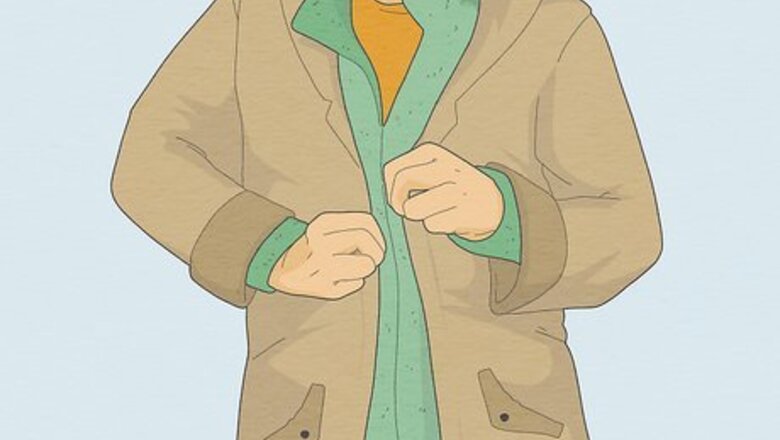
views
Warming Yourself Up in Extreme Situations
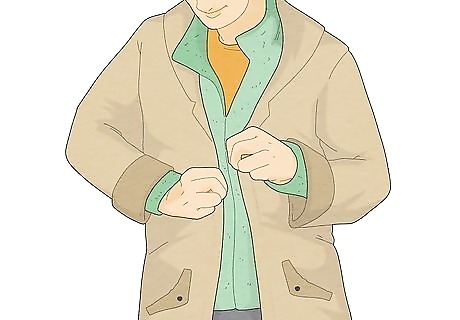
Wear warm clothing. The best way to keep warm is to wear appropriate clothing. If you are going to be outside, wear layers. Layering is the best way to keep warm. You should have three layers of insulation. For the first layer, wear thermals, long johns, or material that wicks away moisture. For the mid layer, wear thick materials, such as fleece and down. For the outer layer, wear a material that protects you from snow, rain, and wind. Your layers should be loose instead of confining. You want to avoid sweating, because sweating creates moisture, which makes you colder.
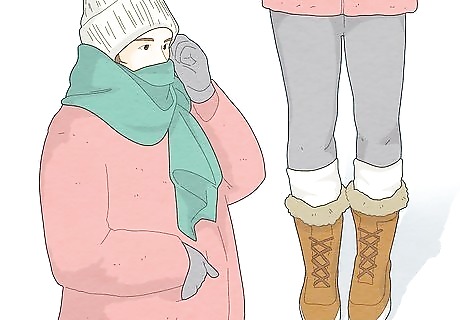
Cover every part of yourself. Wear a hat, a scarf, and gloves. Forgetting a scarf can make you much colder because you lose a lot of heat through your neck. Only wearing one layer of pants is a major mistake people make. Wear thermal pants, fleece tights, and leg warmers under your jeans. Wear multiple pair of socks with winter weather boots. Make sure one pair of socks is a closely fitting wool.
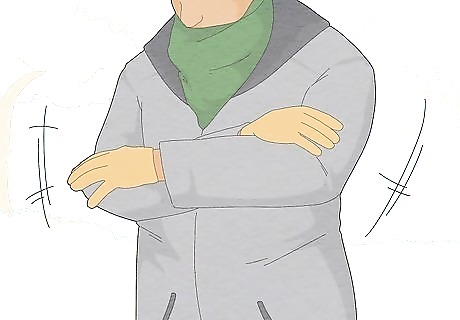
Create friction. If you don't have warm clothes, or if you're wearing layers but are still cold, create friction on the cold parts of your body. That generates some heat. Rub your arms or legs and try to create as much friction as you can. If it is possible, put your arms inside of your shirt and keep them there. You have become a larger mass and are therefore retaining more heat as the heat radiates off of the clothing and both of your arms. If you are wearing long sleeves put one arm in one sleeve and vice versa. Become the largest mass you can. Put your arms and hands under your legs or use the shirt technique. But do not separate yourself; the most heat is conducted when many things are together and can mutually share and give off heat.
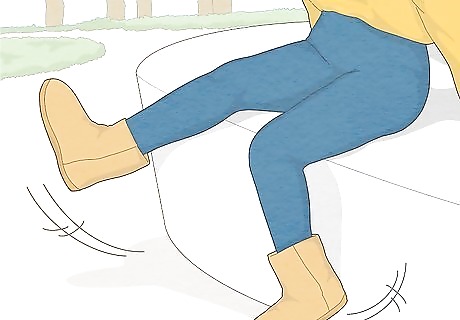
Move your arms and legs around. To get your feet and hands warm, get some blood pumping into them. If your feet are cold, try moving your leg back and forth 30-50 times. Make sure when you move that you include the thigh muscle and that you swing the leg in wide arcs. To warm up your arms, move your arms in large 360 degree circular movements. Make sure to engage your entire arm in the movement. One reason why your hands and feet get cold is because your core is pulling all the heat towards it, leaving your hands and feet bloodless and heatless. Wear vests and more layers over your torso if your hands and feet are constantly cold. If your extremities like your nose or hands are cold, then blow on them. Use hot, warm air generated from the back of your throat for your hands. For your nose, you may want to clasp your hand over your nose. Not only will you warm your nose, but you will also warm your hands with the warm air from your nose.
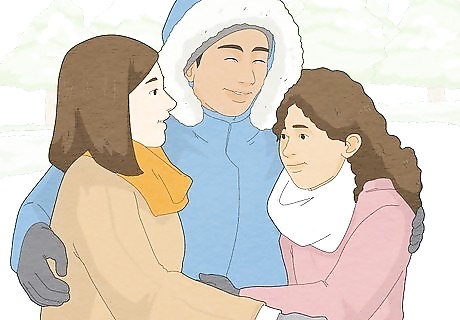
Huddle up. Body heat is transferred between people. The bigger mass attracts more heat. Other people give off lots of body heat. If you are stranded with someone else, cuddle close together to stay warm.
Warming Yourself Up In Normal Situations
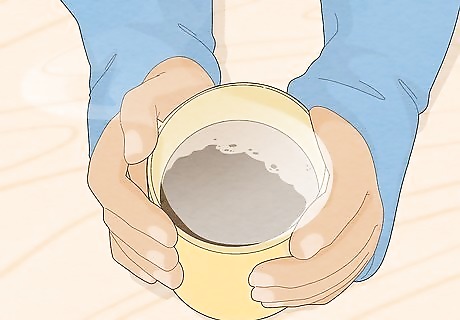
Drink warm beverages. Drinking hot tea, coffee, and soup activates heat sensors along your digestive tract, which gives a warming sensation. Tea and coffee have many health benefits, so as long as you skip heavy creams, sugars, and marshmallows, you are putting good antioxidants into your body as you heat it. Soup has the added benefit of being low in calories. Drinking hot beverages also can warm your hands. Wrapping your cold hands around a mug of hot tea can warm you up in minutes.
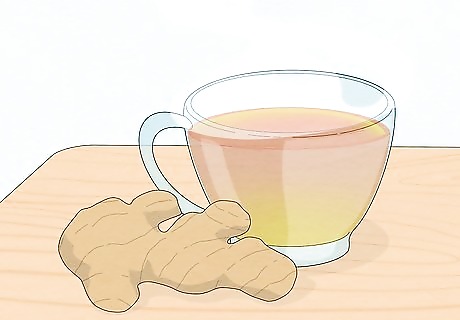
Eat ginger. Ginger is a natural way to get warm, with tons of beneficial side effects. Ginger works as a stimulant, which gets the blood circulating and makes your body temperature rise. It warms you from the inside. Try drinking ginger in tea, eating gingerbread or gingersnap cookies, or sprinkling it into other dishes. Try putting ginger powder in shoes, slippers, or socks if you cannot get your feet warm.
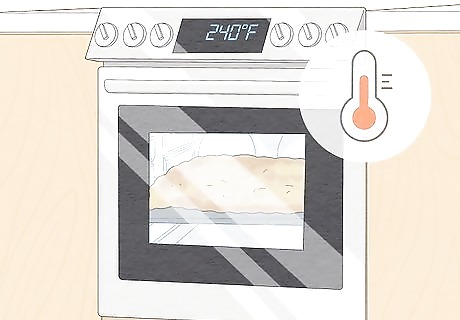
Cook. Using the oven and crock pot helps warm up the kitchen by cooking at lower temperatures for a longer period of time. Casseroles, stews, and soups all warm the body when they are eaten.
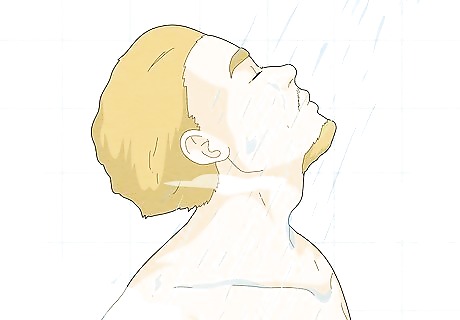
Take a hot bath. Soaking in a hot tub raises your body temperature. If you are cold, try soaking in hot water, or take a hot shower if you prefer. After you take the shower, dry off as quickly as possible and put on long sleeves and pants to trap the heat on your body, helping to keep you warm. Try saunas and steam rooms to warm up, if you have access to them.
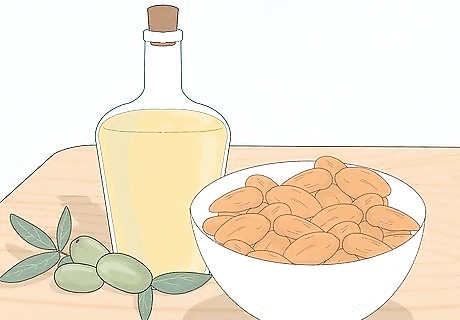
Eat healthy fats. One reason for poor body temperature regulation is a low body fat ratio. Fat is needed to insulate your body. Eat a diet with monounsaturated and polyunsaturated fats, found in foods such as nuts, salmon, avocados, and olive oil.
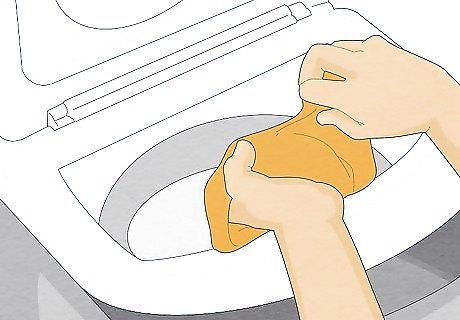
Clean. Doing chores around the house gets you moving, which gets your blood pumping. When your blood starts circulating, your core temperature rises. Vacuum, dust, and sweep to warm yourself. Washing dishes can help warm you significantly. Fill the sink with warm water. Leaving your hands in the warmth while you wash and rinse the dishes will help raise your body temperature. Doing laundry can also help you fight the cold. The warmth from the dryer can help warm your cold hands and arms. Taking clothes right out of the dryer and putting them on can warm you.
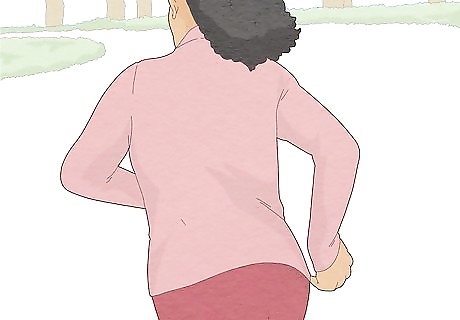
Exercise. Exercise gets your blood pumping, which helps warm you up. Run, lift weights, do yoga, or any kind of movement that gets you to work up a sweat. If you are unable to do large scale exercise, do a much smaller form of physical exertion like jostling your legs or moving your arms. Practice Ashtanga yoga to warm yourself up. This form of yoga takes you through poses and breathing exercises that generate internal body heat. Cold right now with no time for yoga classes? Try this simple yoga warming pose: the cobra. Lie face down on the floor. Place your palms near your chest. Push up, lifting your head, shoulders, and chest. Pull your shoulder blades down and together. Hold for a few seconds, then lower. Do a few reps to feel warmer.
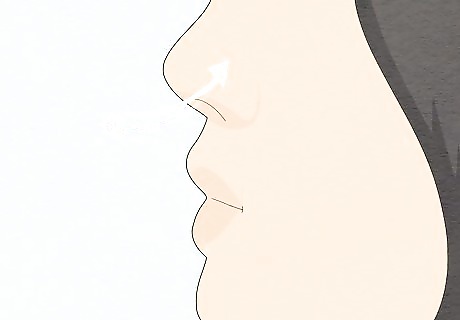
Breathe through your nose. When you breathe through your nose, the air is warmed, which helps raise your body temperature. Try breathing in and holding for four seconds before exhaling. Repeat a few times to warm yourself.
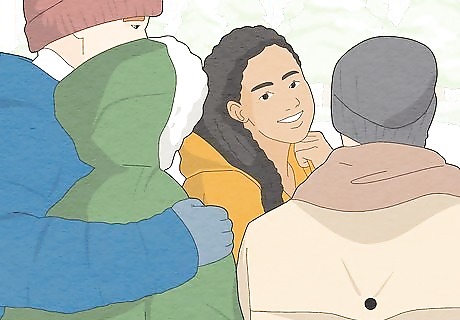
Be social. According to a study done at the University of Toronto, people who are lonely or excluded feel colder. Spending time with people makes you feel warmer. Instead of staying alone in front of the television, get together with a friend or family member.


















Comments
0 comment